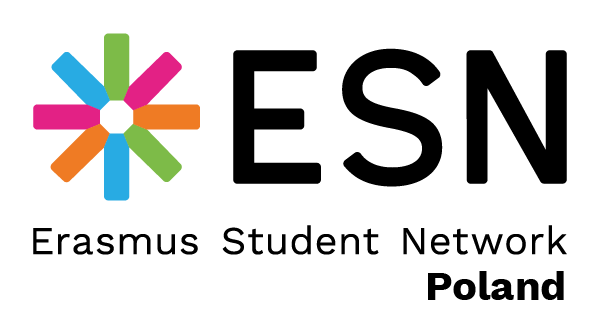When it comes to students Erasmus+ mobility, each case is different and each student has a different situation. So if you have any doubts about your stay abroad, documents, formalities, foreign university or scholarship - contact the university's International Relations Office. Below you can find some of the most frequently asked questions concerning Erasmus+ for Higher Education Institutions, maybe the answers will be able to dispel your doubts.
In the case of studies it is 3 months, in the case of internships - 2 months.
Such situations do happen, of course, it is impossible for our home university to have signed all agreements in the world. In this case, you can ask the International Relations Office if our home university would like to sign an agreement with a specific foreign university so that we can leave. One may ask if it is possible to get involved in the contract signing process, but in most cases, the home university prefers to manage the formalities itself. It is important to notify your willingness to sign a new contract early enough - about a year or a year and a half before the planned departure. It is rather unlikely that the inter-institutional agreement will be signed within 1-2 months.
As with the new inter-institutional agreement, please contact the International Relations Office. You can also involve the coordinator of the agreement, which is already signed at your sending university - he/she often has contact with the foreign university and knows it "from the inside", and thus can know whether the university will be willing to sign a new contract for other faculties.
It depends on the sending university - at some universities, students may go to Erasmus+ studies or internships with deficiencies in ECTS credits, at others it is unacceptable. Some universities allow enrollment for Erasmus+ studies/internships with deficiencies, while during the recruitment, students undertake to include the deficiencies so that they can leave "with a clean slate", otherwise, the student is not allowed to leave.
It is assumed that the student will complete as many credits abroad as specified in the ECTS course grid for a specific semester/year of mobility (i.e. 30 ECTS/semester). Sometimes, during conversations with the International Relations Office or with the Inter-institutional agreement coordinator/Faculty coordinator, it turns out that the student can pursue +/- 5 ECTS abroad (from the initially assumed number), depending on the subjects he/she chooses. However, in most cases it is 30 ECTS.
This number depends on the Placement Coordinator/Dean signing the Learning Agreement for Traineeships and the host institution of the student. The Erasmus+ program does not specify the minimum number of hours that the student must take during the internship abroad. The number of hours does not affect the amount of the grant. However, it is assumed that the student should work between 20 and 40 hours a week.
Of course! This is why the second part of the Learning Agreement for Studies, called Changes, was created. This is where we enter the changes to the originally established study abroad program, i.e. the subjects that we want to change. This part of the Learning Agreement, like its first part, must be confirmed by both, the host and the sending institution (we must send the document to our university from Poland). Each host university determines the time during which the student can make changes in LAS, so at the organizational meeting, it is best to make sure what the deadline is and by when the document with all signatures must be delivered (usually the first 2-3 weeks of the semester).
Yes! If there is any unexpected change in the host institution, or maybe we, as students, get a promotion or additional duties, it is worth changing the data in LAT in the section Changes. We enter the changes that have occurred there and ask the employer to sign it, and finally send the document to the university.
Yes! If for some reason you want to shorten the duration of your stay (e.g. exams passed earlier than expected, or, in case of internships, not a very cool company or place of stay), you can do it, but you must remember that it will be associated with the return of the scholarship for the period of time by which you shorten the stay. In this case, it is best to ask about the procedure at the International Relations Office.
Yes! If you still have departure capital (“kapitał wyjazdowy”) and meet other requirements set by the university, you can extend your stay abroad. Usually, students who extend their stay are the ones that signed up for one semester abroad only, the ones who want to stay another semester in the same place, or students who want to extend their internships. In this case, it is best to ask about the procedure at the International Relations Office.
Lorem ipsum Lorem ipsum
